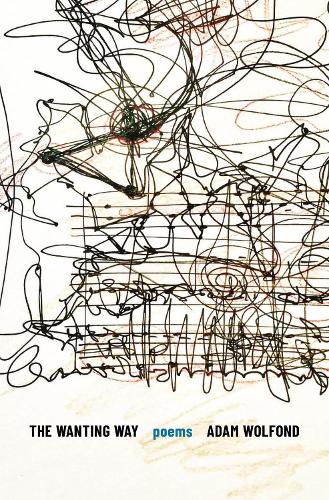
The Wanting Way: Poems
(Paperback)
Publishing Details
The Wanting Way: Poems
By (Author) Adam Wolfond
Milkweed Editions
Milkweed Editions
14th February 2023
United States
Classifications
General
Non Fiction
811.6
Physical Properties
Paperback
184
Width 152mm, Height 228mm, Spine 6mm
Description
- Author is a nonspeaking autistic artist who has built a large following in the interdisciplinary communities
- Author has been widely published in Poem-a-Day, Poets.org, and the Poetry Society of America
- Strong blurb from Lauren Russell
- Book is second in a major new series from the publisher, Multiversea literary series written and curated by neurodivergent writerswhich will be significantly promoted by the publisher through media campaigns, advertising, and exclusive digital content
- Book's perspective and engagement with the experiences of a nonspeaking autistic artist, and its engagement with the natural world, is a groundbreaking and accessible addition to a market that lacks these perspectives
Reviews
Praise for The Wanting Way
As a nonspeaking autistic artist, prose writer and poet, Wolfond uses language as an invitation to witness and engage where evanescence arises from multiplicity, not uniformity and convention.Victoria Chang, New York Times Magazine
The second book in Multiverse, a series written by the neurodivergent Wolfond, probes the relationships between humanity and nature.Publishers Weekly
Wolfonds poems are tender-hearted evocations he has demonstrated that all language, and all true poetry, is an invisible architecture within which we can all conduct our lives with a quiet grace and a humble charm.Donald Brackett, Critics at Large
Adam Wolfonds astonishing work maps and annotates the interior spaces in lyric intensity. In poems that glide, posit, and sing, we hear how the body, attuned to the trees . . . languaging, constructs art. It is here where we are taught to understand multiple knowledges and registers in the choir of whats possible. These are extraordinary poems.Oliver de la Paz
way making, way finding when thinking and feeling alongside Wolfonds poems, the verbs approach holding hands bathing talking feeling / and seeing that immerses / everything to be avowedly from and for autistic greatness to be given in trust to the important copilots in the / atmosphere of moving things which is to say to be given in an invitation to yes where yes is always with love / and not the way of force an invitation to question the consent / and not the disabled person is an invitation, also, for every type of mind to abandon its type Farid Matuk
Through words full of musicality Adam advocates for his right to be himself, demanding that his very way of existing in the world be respected. The comparisons, analogies, and metaphors in his poems give us a colorful imagery of a body in constant movement, the synesthetic experience of a mind full of colorful sounds and feelings. Adam invites talkers to quietly listen to his nonspeaking language, telling us of a direct line between his brain and his body, his body and his language. By wanting to really want to listen, we can learn the language of his movements. Amy Sequenzia
Resonant across these exquisite poems is a wanting that moves across a talking without words, because the body is a wanting thing pacing the environment. Wanting, 111 times, carried by and in the world, a movement not strictly voluntary but fiercely relational, a want not for me, not for all I can do, but for the facilitation of a languaging in assembly, a languaging wildly neurodiverse in its talking feeling and seeing. The wanting question in The Wanting Way pulses across this collection, cutting as it traces new ways of moving in the living.Erin Manning
Praise for Adam Wolfond
Wolfonds poems masterfully extend the choreography to include many kinds of thought-motion, inviting the reader to move with and through navigations of language, time, and space. With surprising syntax that spurs surprising thought, language drifts and reforms like the water that runs through so many of Wolfonds poems, as the non-talking speaker is continuously planting, growing, and consuming language. . . . Wolfonds poems remind me that even for the open / thinker who / feels too much, uncontainment, or porousness, can also be expansivethrowing open the door to tall ideas, to expert movement, to watering thoughts like rain.Lauren Russell
Author Bio
Adam Wolfond is the author ofThe Wanting Way. He is a nonspeaking autistic artist, poet, and university lecturer whose work has been featured in multimedia exhibitions, documentary films, academic journals, and philosophical treatises. He is the youngest writer to appear in the Academy of American Poets Poem-A-Day series and is the author of two chapbooks,There Is Too Music in My EarsandIn Way of Music Water Answers Toward Questions Other Than What Is Autism, both published by Unrestricted Editions. He is also a founding member of dis assembly, a neurodiverse artist collective based in Toronto.
